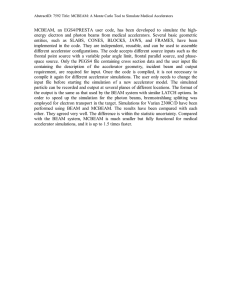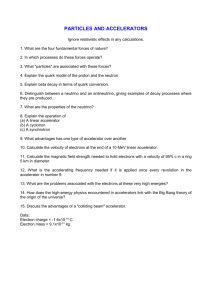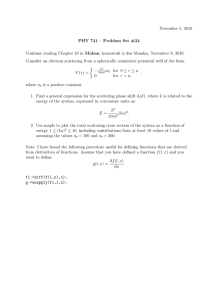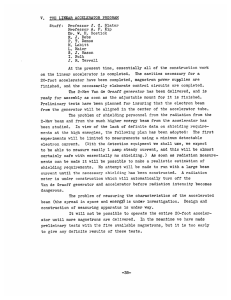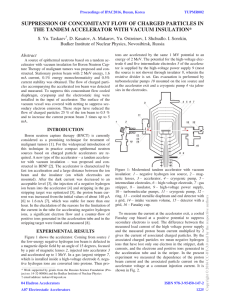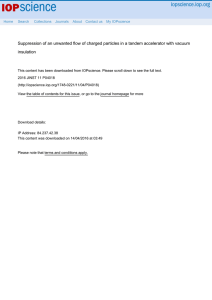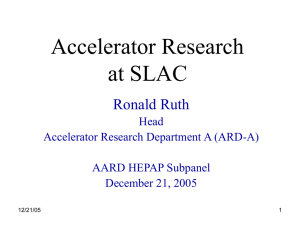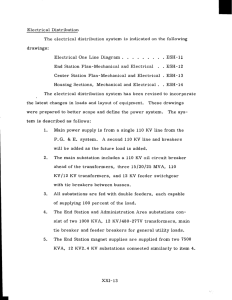AbstractID: 1393 Title: A First-Principle Analytic Method To Model 6... Dose From An Accelerator Head
advertisement
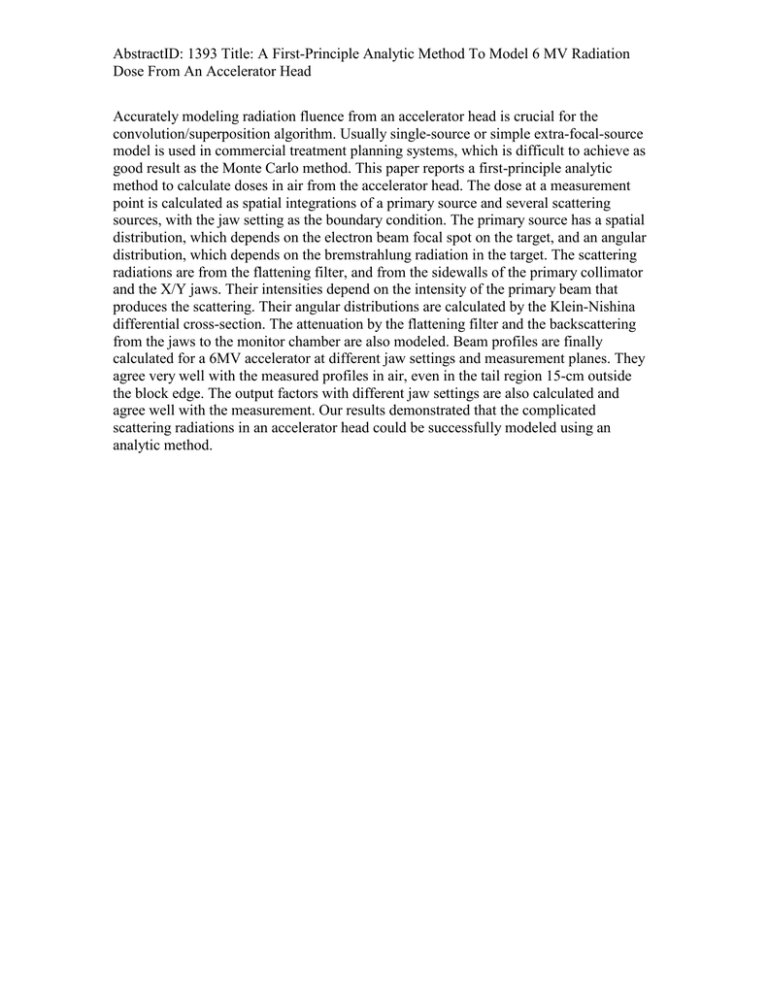
AbstractID: 1393 Title: A First-Principle Analytic Method To Model 6 MV Radiation Dose From An Accelerator Head Accurately modeling radiation fluence from an accelerator head is crucial for the convolution/superposition algorithm. Usually single-source or simple extra-focal-source model is used in commercial treatment planning systems, which is difficult to achieve as good result as the Monte Carlo method. This paper reports a first-principle analytic method to calculate doses in air from the accelerator head. The dose at a measurement point is calculated as spatial integrations of a primary source and several scattering sources, with the jaw setting as the boundary condition. The primary source has a spatial distribution, which depends on the electron beam focal spot on the target, and an angular distribution, which depends on the bremstrahlung radiation in the target. The scattering radiations are from the flattening filter, and from the sidewalls of the primary collimator and the X/Y jaws. Their intensities depend on the intensity of the primary beam that produces the scattering. Their angular distributions are calculated by the Klein-Nishina differential cross-section. The attenuation by the flattening filter and the backscattering from the jaws to the monitor chamber are also modeled. Beam profiles are finally calculated for a 6MV accelerator at different jaw settings and measurement planes. They agree very well with the measured profiles in air, even in the tail region 15-cm outside the block edge. The output factors with different jaw settings are also calculated and agree well with the measurement. Our results demonstrated that the complicated scattering radiations in an accelerator head could be successfully modeled using an analytic method.

